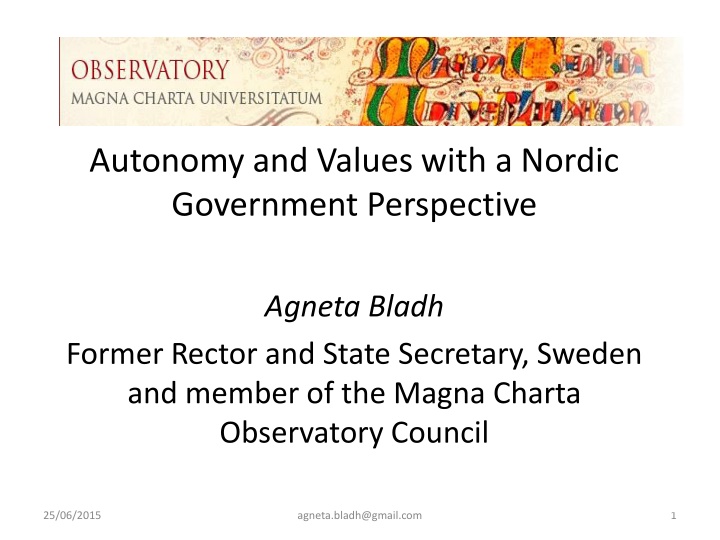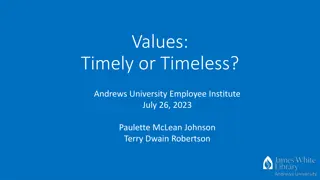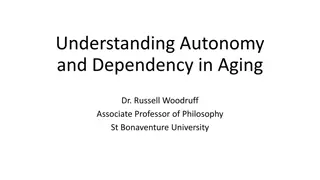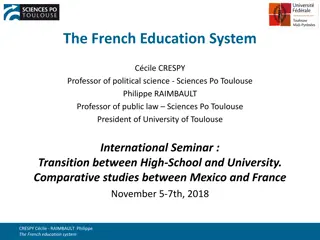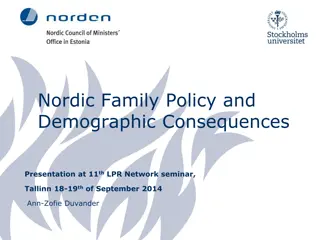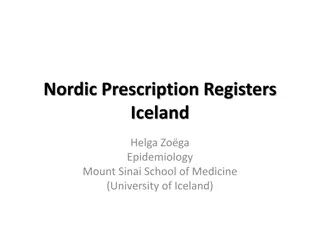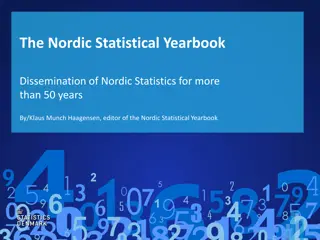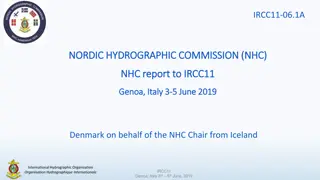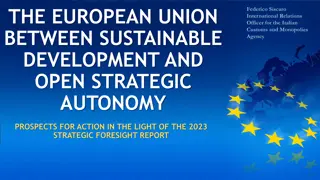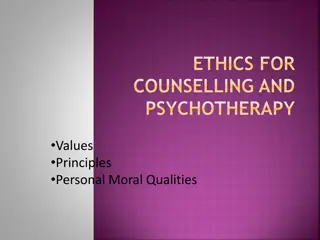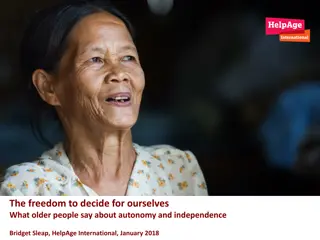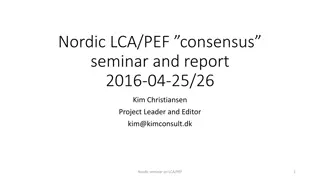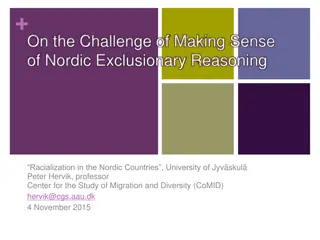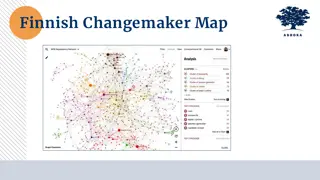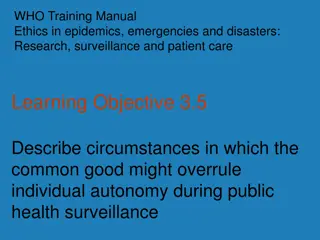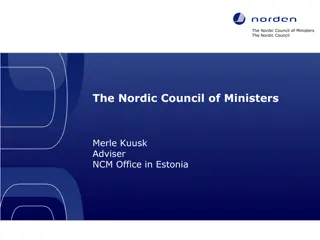Nordic Government Perspective on Autonomy and Values in Higher Education
Agneta Bladh, a former Rector and State Secretary in Sweden, discusses the importance of autonomy and values in the higher education systems of Nordic countries. She explores the role of the state as a guardian, different types of autonomy, restrictions, arguments for and against larger autonomy, and the balance needed in regulating higher education institutions. The discussion also touches on encouraging adaptability to societal needs.
Download Presentation

Please find below an Image/Link to download the presentation.
The content on the website is provided AS IS for your information and personal use only. It may not be sold, licensed, or shared on other websites without obtaining consent from the author.If you encounter any issues during the download, it is possible that the publisher has removed the file from their server.
You are allowed to download the files provided on this website for personal or commercial use, subject to the condition that they are used lawfully. All files are the property of their respective owners.
The content on the website is provided AS IS for your information and personal use only. It may not be sold, licensed, or shared on other websites without obtaining consent from the author.
E N D
Presentation Transcript
Autonomy and Values with a Nordic Government Perspective Agneta Bladh Former Rector and State Secretary, Sweden and member of the Magna Charta Observatory Council 25/06/2015 agneta.bladh@gmail.com 1
My background Experience from the Swedish Ministry for 5 years and the National Agency for HE for 3 years + Rector for 6 years Studying the HE state regulations in four Nordic countries, Sweden, Finland, Norway and Denmark 25/06/2015 agneta.bladh@gmail.com 2
The state can be the guardian Nordic examples By regulating academic freedom and institutional autonomy in the constitution or HE Law, it is guaranteed by the state Research freedom seems to be most important 25/06/2015 agneta.bladh@gmail.com 3
State relations in different types of autonomy Academic autonomy Organisational autonomy Financial autonomy Staff autonomy 25/06/2015 agneta.bladh@gmail.com 4
Restrictions to autonomy HE regulations regarding regarding organisation HE regulations regarding regarding study organisation HE funding, resource allocation and accountability requirements Staff regulation 25/06/2015 agneta.bladh@gmail.com 5
Arguments for larger autonomy Facilitate dialogue between HEIs and their environment Ensure better exploitation of resources Critical and reflecting HEIs necessary for a democracy 25/06/2015 agneta.bladh@gmail.com 6
Arguments from the state to intervene Guarantee efficient use of state funding Make HEIs more responsive to society s need Make HEIs more labour market oriented Make HEIs give priority to programs and research, necessary for the country 25/06/2015 agneta.bladh@gmail.com 7
What happens if you misregulate or regulate too much? Are there other ways in encouraging HEIs to change and be more adaptive to societal needs? 25/06/2015 agneta.bladh@gmail.com 8
Academic responsibility Internal academic responsibility: Be honest and truthful to academic values Ethical behaviour Prevent scientific dishonesty Strive for high quality in education and research Take part in quality assurance activities Strive for openness, transparency and gender equality Responsibility for science results 25/06/2015 agneta.bladh@gmail.com 9
Academic responsibility External academic responsibility: Meet societal needs of education and research Responsible research and innovation, RRI Be in continuous dialogue with the society and the public Both keep integrity and co-operate 25/06/2015 agneta.bladh@gmail.com 10
Trust and interaction Academic freedom and academic responsibility are close connected Integrity is important both for HEIs, the faculty member and the state High academic responsibility gives fewer reasons for political intervention 25/06/2015 agneta.bladh@gmail.com 11
They are linked! University autonomy, academic freedom and societal responsibility are close connected 25/06/2015 agneta.bladh@gmail.com 12
You have to trust the universities! 25/06/2015 agneta.bladh@gmail.com 13
